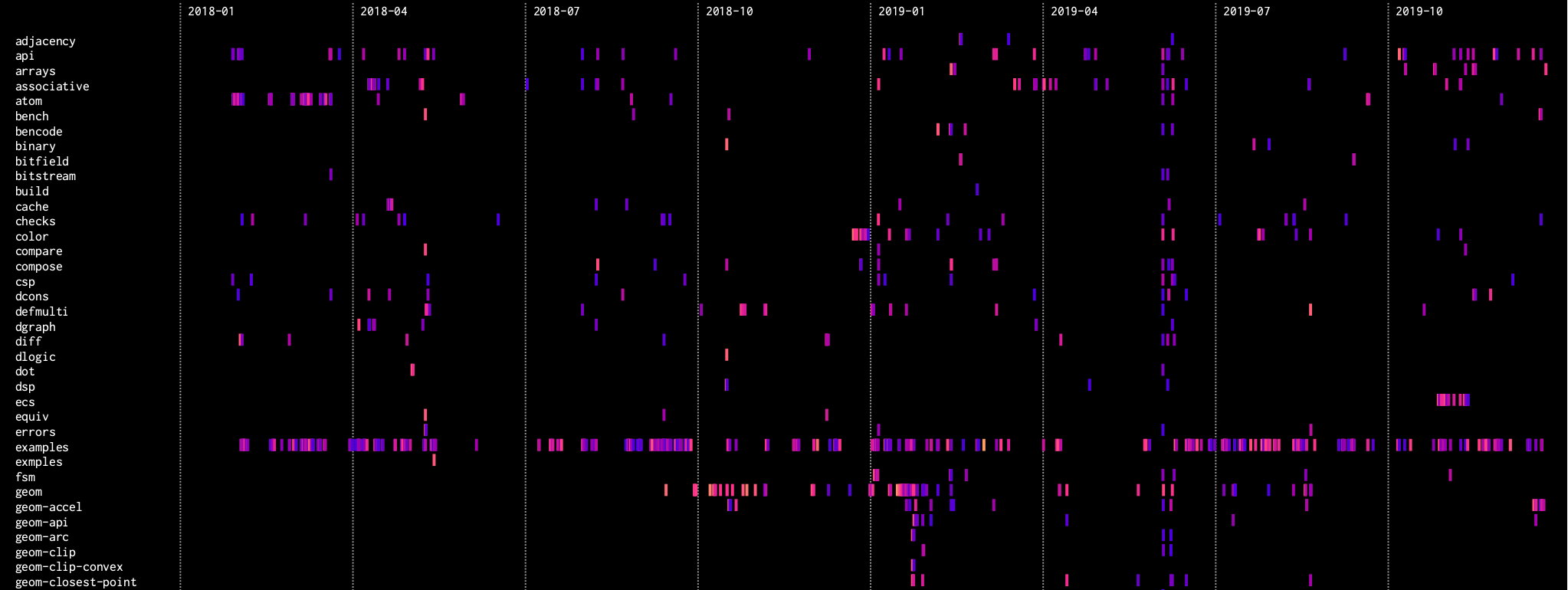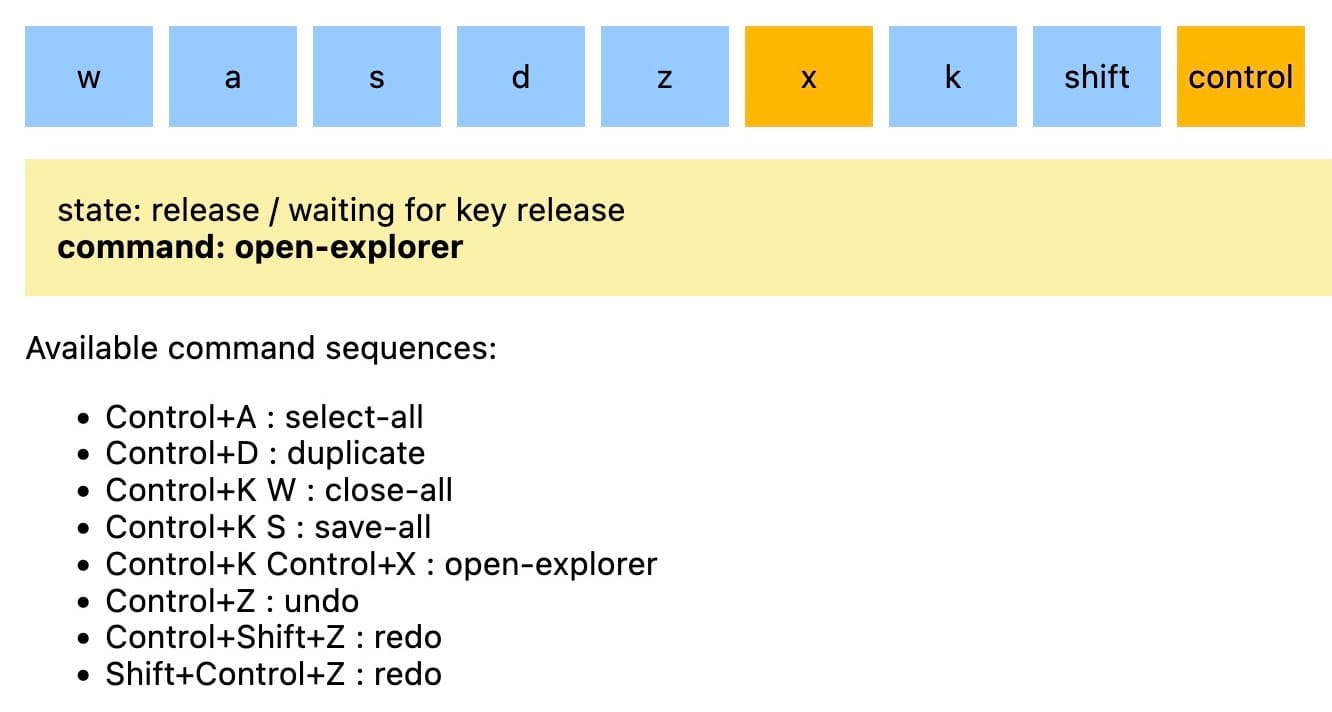



[!NOTE]
This is one of 199 standalone projects, maintained as part
of the @thi.ng/umbrella monorepo
and anti-framework.
🚀 Please help me to work full-time on these projects by sponsoring me on
GitHub. Thank you! ❤️
About
ES Map/Set-compatible implementations with customizable equality semantics & supporting operations.
[!IMPORTANT]
In July 2024 this package was restructured and split-up to extract some
features into smaller more focused packages:
- Array based
ArraySet, Linked List based LLSet and customizable EquivMap
& HashMap implementing the full ES6 Map/Set APIs and additional features:
ICopy, IEmpty & IEquiv implementationsICompare implementation for sorted types- multiple value additions / updates / deletions via
into(), dissoc()
(maps) and disj() (sets) - configurable key equality & comparison (incl. default implementations)
- getters w/ optional "not-found" default value
- Polymorphic set operations (union, intersection, difference) - works with both
native and custom Sets and retains their types
- Natural & selective
joins
(incl. key renaming, ported from Clojure)
Please see these packages for some example use cases:
Why?
The native ES6 implementations use object reference identity to determine
key containment, but often it's more practical and useful to use equivalent
value semantics for this purpose, especially when keys are structured data
(arrays / objects).
Note: It's the user's responsibility to ensure the inserted keys are kept
immutable (even if technically they're not).
Comparison with ES6 native types
const a = [1, 2];
const b = [1, 2];
Using native implementations
const set = new Set();
set.add(a);
set.has(b);
const map = new Map();
map.set(a, "foo");
map.get(b);
Using custom implementations:
import { defArraySet } from "@thi.ng/associative";
const set = defArraySet();
set.add(a);
set.add({a: 1});
set.has(b);
set.has({a: 1});
import { defLLSet } from "@thi.ng/associative";
const set = defLLSet();
set.add(a);
set.add({a: 1});
set.has(b);
set.has({a: 1});
import { defEquivMap, ArraySet } from "@thi.ng/associative";
const map = defEquivMap(null, { keys: ArraySet });
map.set(a, "foo");
map.get(b);
import { defHashMap } from "@thi.ng/associative";
import { hash } from "@thi.ng/vectors"
const map = defHashMap([], { hash })
map.set([1, 2], "a");
map.set([3, 4, 5], "b");
map.set([1, 2], "c");
Status
STABLE - used in production
Search or submit any issues for this package
Installation
yarn add @thi.ng/associative
ESM import:
import * as assoc from "@thi.ng/associative";
Browser ESM import:
<script type="module" src="https://esm.run/@thi.ng/associative"></script>
JSDelivr documentation
For Node.js REPL:
const assoc = await import("@thi.ng/associative");
Package sizes (brotli'd, pre-treeshake): ESM: 3.16 KB
Dependencies
Note: @thi.ng/api is in most cases a type-only import (not used at runtime)
Usage examples
Four projects in this repo's
/examples
directory are using this package:
| Screenshot | Description | Live demo | Source |
|---|
 | Heatmap visualization of this mono-repo's commits | | Source |
 | Augmenting thi.ng/geom shapes for WebGL, using instancing & attribute buffers | Demo | Source |
 | rstream & transducer-based FSM for converting key event sequences into high-level commands | Demo | Source |
 | Responsive image gallery with tag-based Jaccard similarity ranking | Demo | Source |
API
Generated API docs
IEquivSet
All Set implementations in this package implement the
IEquivSet
interface, an extension of the native ES6 Set API.
ArraySet
Simple array based Set implementation which by default uses
@thi.ng/equiv
for value equivalence checking.
LLSet
Similar to ArraySet, but uses
@thi.ng/dcons linked list
as backing storage for values.
EquivMap
This Map implementation uses a native ES6 Map as backing storage for
its key-value pairs and an additional IEquivSet implementation for
canonical keys. By default uses ArraySet for this purpose.
HashMap
Map implementation w/ standard ES6 Map API, supporting any key type via
hash codes computed via user supplied hash function. Uses Open
Addressing / Linear
Probing to resolve key collisions. Customizable via HashMapOpts
constructor argument. Hash function MUST be given.
Authors
If this project contributes to an academic publication, please cite it as:
@misc{thing-associative,
title = "@thi.ng/associative",
author = "Karsten Schmidt",
note = "https://thi.ng/associative",
year = 2017
}
License
© 2017 - 2024 Karsten Schmidt // Apache License 2.0











